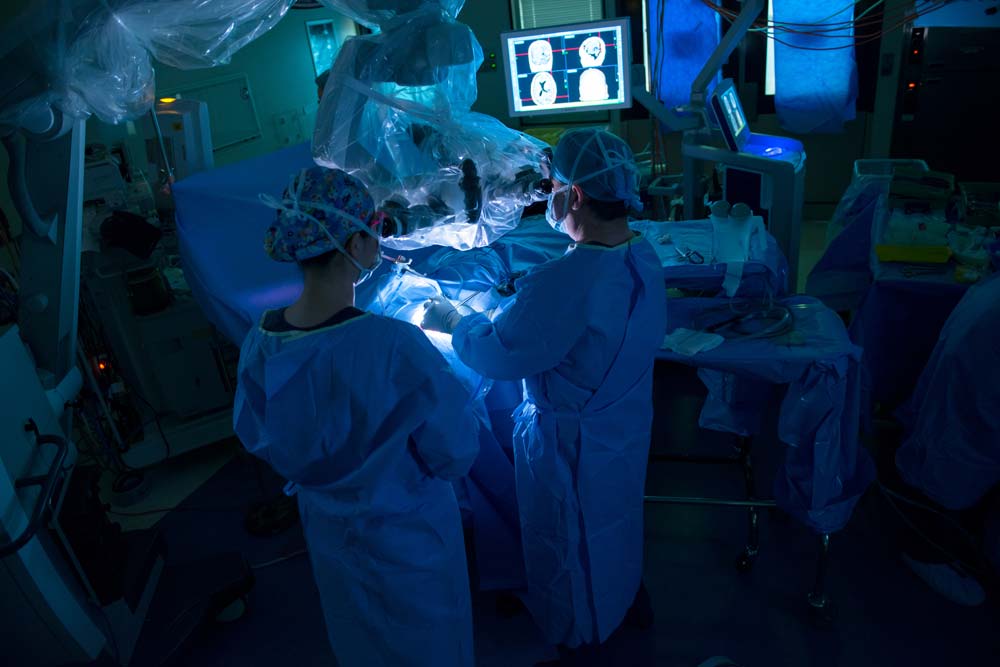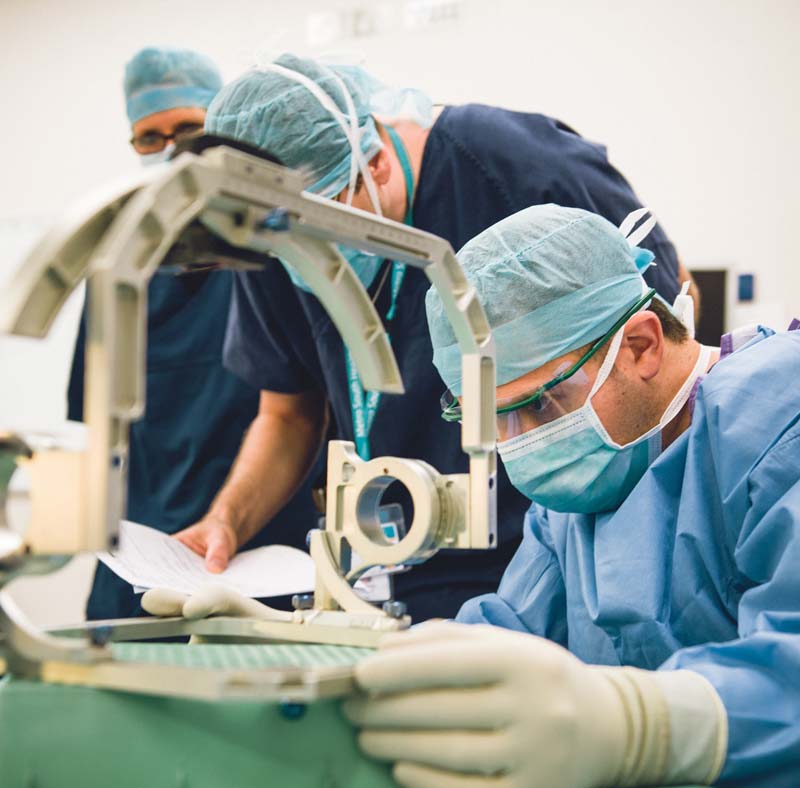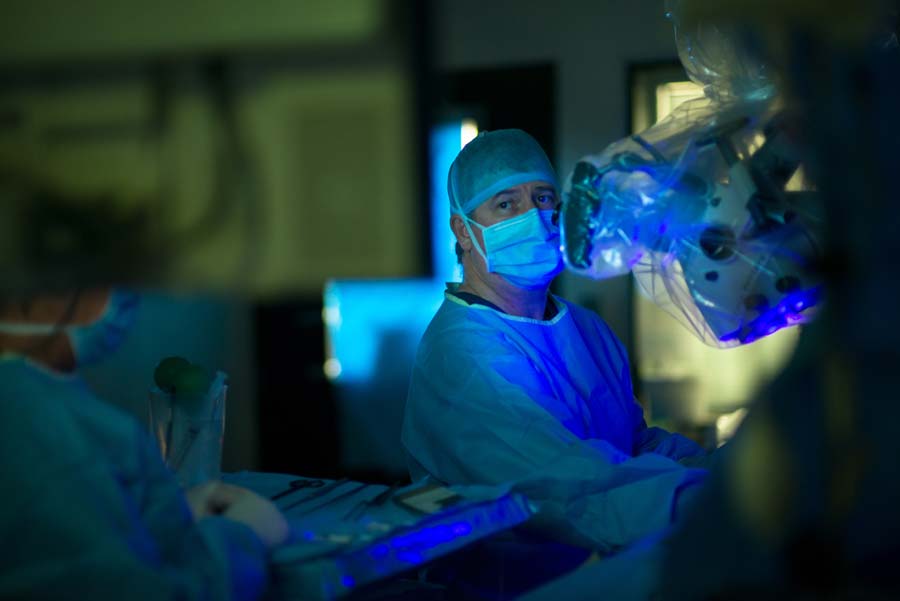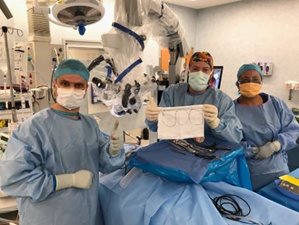Brain surgery procedures are often complex operations, a major and daunting event in someone’s life. It is always good to have some information about it to get an overview of what to expect. We have tried to provide some insights into some frequently asked questions, mainly about symptoms, and associated side-effects. We believe that having some background information can help, but consulting your doctors for specifics is still the best practice.
At Brisbane Clinical Neuroscience Centre, we are proud to provide cutting-edge practices and embrace the latest healthcare technologies in our surgery. All our specialists work in unison to provide an excellent patient experience and we as a team always strive to bring the utmost precision and accuracy to our work.
At Brisbane Clinical Neuroscience Centre, we are proud to provide cutting-edge practices and embrace the latest healthcare technologies in our surgery.
In our facility, we strive to make you feel at home. All of our doctors, nurses and practice staff members are highly experienced and carry a special interest in the use of best care services to ensure that your healthcare journey is as smooth as possible.
Can brain surgery cause brain damage?

Brain surgeries are often complex and sometimes risky, and sometimes areas of the brain do not work as well for a while afterwards. This can be due to local swelling of the tissues, as occurs in any type of surgery. Most often, any post-operative problems are temporary and settle fairly quickly. However, the risk of permanent impairment of function from a surgical procedure does need to be carefully assessed pre-operatively. The risk of intervention versus the risk from the disease process is a critical consideration in deciding whether or not surgery is appropriate, but your surgeon will take you through this decision-making process carefully.
Usually, your doctors would give you some idea about your recovery journey. Since brain surgery differs from person to person, your specialists are the best people to speak to for information.
With advances made by medical technologies, brain surgeries are able to be performed with a greater margin of safety than ever.
Can brain surgery be done awake?
Awake surgery can indeed be performed on the brain but it is only very rarely required.
Awake surgery of your brain may have a role when the surgery is carried out in parts of your brain that control speech or movement. Your surgeon would determine if it is necessary to consider monitoring these functions of your brain while performing surgery.
Awake surgery can potentially lower the risk of side effects post-surgery and can be performed without pain. It is however a daunting prospect for the patient, and fortunately is only rarely necessary.
Can brain surgery change your personality?
Brain surgery is a major event in a person’s life, and it can be a while before you recover from it. It is common for patients to notice side-effects like confusion, mood swings, or issues with speech. However, the impact of brain surgery on personality differs from person to person.
There are many factors that contribute to the changes in your behavior like the type and size of the tumour, effects of other treatments like chemotherapy and radiotherapy, or overall fitness of the patients. Occasionally personality change can result from the presence of a tumour within a part of the brain that regulates aspects of personality (typically the frontal lobes of the brain), or from surgery to treat it.
Can brain surgery be fatal?
The vast majority of surgeries can be performed safely and effectively, with minimum risk.
The risk to one’s life from an operation on the brain is very small, but it does vary from one procedure to another, depending on the structures that are involved in the disease process for which the surgery is being performed.
In general, one should only elect to have brain surgery when the alternative to the operation (ie the risk or degree of incapacity from the disease) is of higher risk than the operation itself.
The vast majority of surgeries can be performed safely and effectively, with minimum risk. However, no intervention is without risk and the pros and cons of any surgical procedure need to be carefully considered and discussed before proceeding.
Can brain surgery cause dementia?

Brain surgery doesn’t cause dementia. A dementia – like process can sometimes result in the long term after radiotherapy to the brain for treatment of some tumours, but not from surgery itself.
Can brain surgery help autism?
There is no evidence that brain surgery plays any role in the treatment of autistic spectrum disorder.
Can brain surgery cause depression?

Brain surgery is a major event in someone’s life. It is not unusual for a patient to feel mood swings, sudden emotional responses etc. Occasionally some people can develop depression after surgery, although it is usually temporary and treatable. This is most commonly seen after some surgical procedures to cure epilepsy.
The recovery journey post brain surgery can be challenging with people suffering from some kind of emotional issues within weeks lasting shorter durations and some might find it difficult to control their emotions for a period of time.
Fortunately, expert counseling, medications, diet, and care services can help patients to recover quickly.
If you have any questions about your condition and would like to consult our specialists, you can contact us here.




